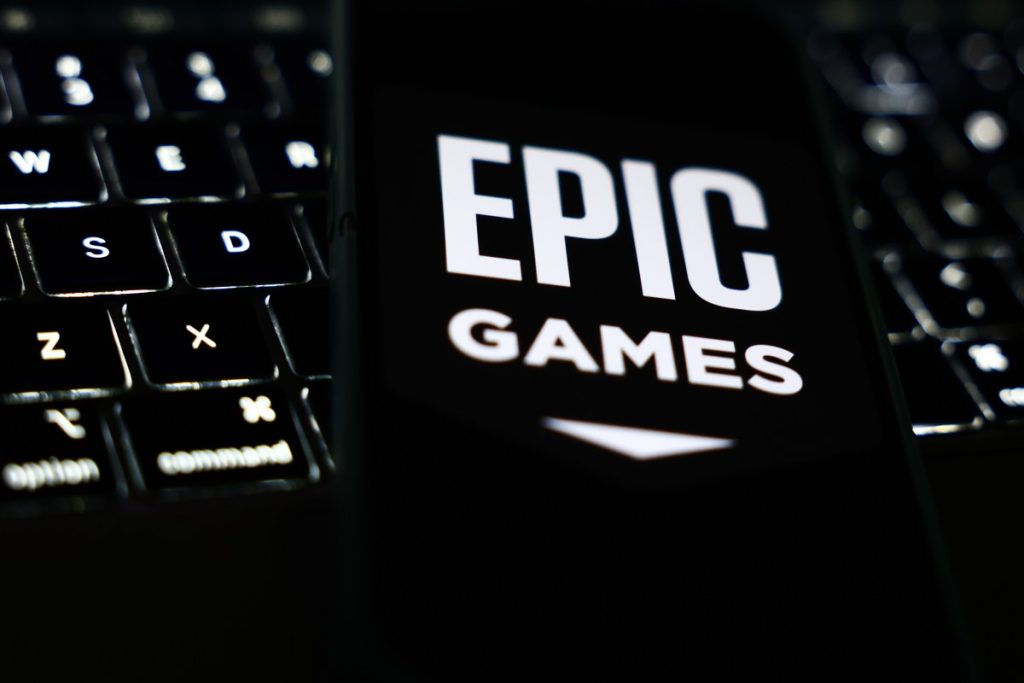In a significant development within the mobile app distribution market, Epic Games, the powerhouse behind the wildly popular game Fortnite, has settled its antitrust lawsuit against Samsung. The case, filed last September, accused the South Korean tech giant of collaborating with Google to restrict competition by blocking rival app stores on Samsung devices. This legal battle has been closely monitored, as it highlights ongoing tensions between major players in the tech industry regarding app distribution and marketplace access.
Details of the Antitrust Case
The crux of Epic’s lawsuit revolved around Samsung’s “Auto Blocker” feature, which was designed to prevent users from downloading applications outside of the Google Play Store and the Samsung Galaxy Store. Epic argued that this feature was a coordinated effort to stifle competition in the app distribution space. The lawsuit claimed that such practices entrenched the dominance of Google and Samsung in the mobile marketplace, making it difficult for alternative app stores and developers to thrive.
Tim Sweeney, CEO of Epic Games, confirmed the dismissal of the case in a statement on X, expressing gratitude for Samsung’s willingness to address the concerns raised by Epic. He stated, “We’re dismissing our court case against Samsung following the parties’ discussions,” signaling a potentially cooperative future between the two companies. However, both Samsung and Google have refrained from commenting on the settlement, leaving many questions unanswered regarding the implications of this resolution for the larger tech ecosystem.
Context and Implications of the Settlement
The settlement comes nearly a year after Epic launched its own mobile app store, allowing it to distribute not just its own games but also those from third-party developers. This move was part of Epic’s broader strategy to promote competition and provide users with more choices beyond conventional app stores managed by major platform holders like Google and Apple. This initiative is particularly important as it aligns with a growing movement toward increased regulation and scrutiny of monopolistic practices in the tech sector.
The case against Samsung is one of several legal actions Epic has pursued to challenge perceived monopolistic practices by major tech companies. In 2023, Epic won a separate case against Google, where a judge ruled that the company’s app store practices constituted an illegal monopoly. While this ruling mandated Google to open its app store to rival developers, it is important to note that Google has since appealed the decision, with the outcome still pending.
Reactions from Industry Experts
The tech community has expressed mixed reactions to the settlement between Epic and Samsung. Industry analysts point out that while the resolution may seem like a victory for Epic, it raises questions about whether such legal battles will continue to shape the future of app distribution. “Epic’s aggressive legal strategy is indicative of a larger shift in how companies are approaching competition and user rights in the digital space,” says Jonas Johnson, a tech analyst at Gartner. “We may see more companies joining Epic’s fight against established norms in digital marketplaces.”
Furthermore, the implications of this settlement extend beyond the immediate parties involved. As the mobile gaming market grows, the question of fair access to app distribution will likely become a focal point for regulators. In light of these developments, global tech regulatory bodies are paying closer attention to how tech giants operate within their respective ecosystems, which could lead to more stringent guidelines in the future.
Market Response and Future Outlook
The market’s response to this news has been cautiously optimistic. While Epic’s stock has shown resilience following its legal victories, the broader implications for the app distribution landscape remain to be seen. With a growing emphasis on competition and user choice, other developers may feel encouraged to pursue their own legal challenges against platform monopolies.
- In 2023, Epic’s lawsuit against Google resulted in a significant ruling that disrupted longstanding practices in app distribution.
- The company’s recent moves suggest a commitment to fostering an environment where alternative app stores can flourish.
- As Epic continues to push for change, the tech industry is likely to experience more scrutiny from regulators and consumers alike.
As the dust settles on the Epic Games and Samsung settlement, the future of app distribution remains uncertain yet increasingly contested. The outcome of these high-profile legal battles could serve as a catalyst for regulatory changes across the tech landscape, shaping how apps are distributed and accessed worldwide.

